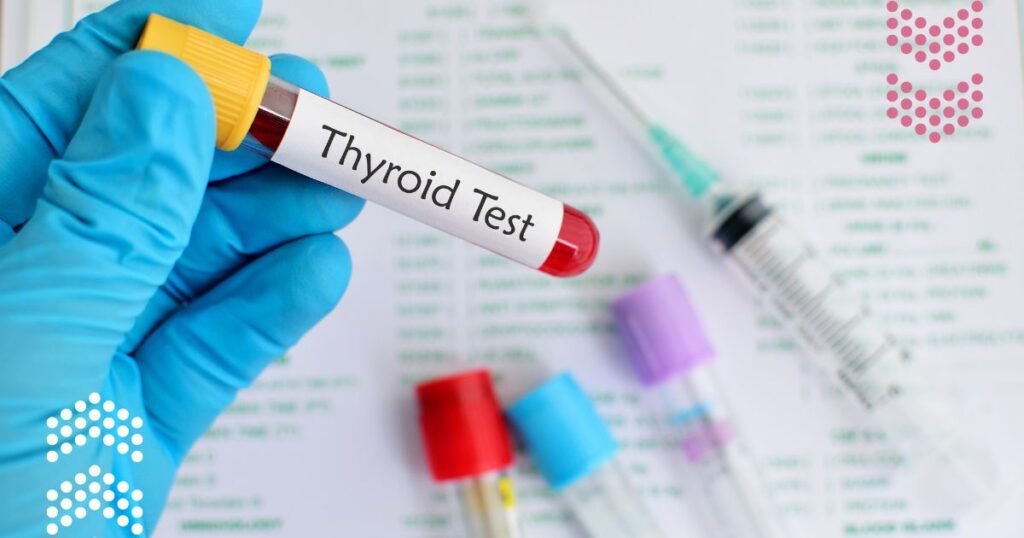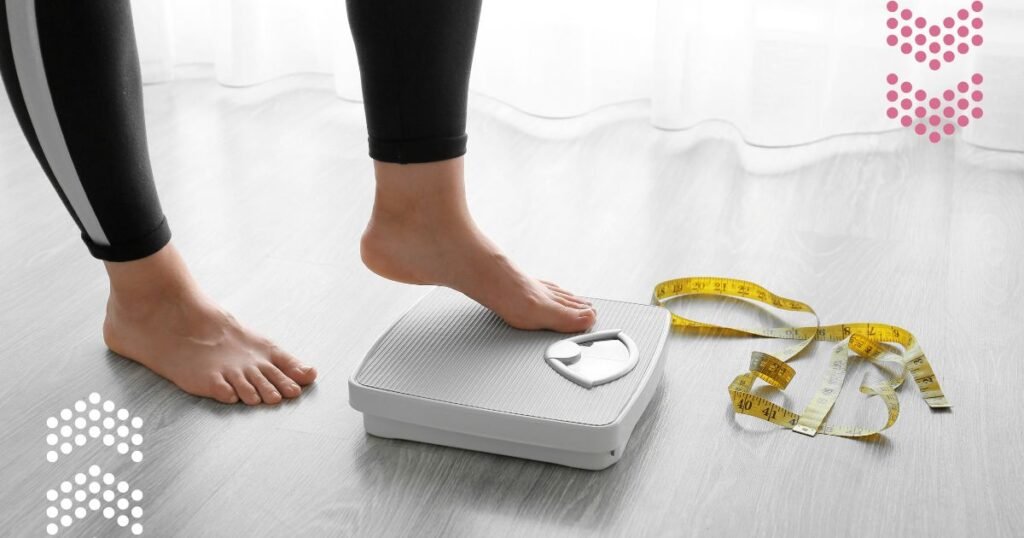Hypothyroidism vs. Hyperthyroidism: How Each Affects Women’s Weight
The thyroid gland plays a crucial role in regulating metabolism, controlling how the body uses energy.
For women, thyroid disorders such as hypothyroidism and hyperthyroidism can significantly impact weight, making it either difficult to lose or easy to unintentionally shed pounds.
Understanding how these conditions affect women’s weight and overall health is essential for effective management.
In this article, we will explore the differences between hypothyroidism and hyperthyroidism, how they affect women’s weight, and practical steps for managing thyroid health to maintain a healthy weight.
Understanding the Thyroid Gland in Women
What is the thyroid gland?
The thyroid is a small, butterfly-shaped gland located in the neck, just below the Adam’s apple.
It produces two key hormones—triiodothyronine (T3) and thyroxine (T4)—which are critical for regulating the body’s metabolic rate.
These hormones influence how quickly the body uses energy from food, how efficiently calories are burned, and how organs function.
The thyroid also plays a role in other vital processes, such as regulating heart rate, body temperature, and muscle strength.
When it functions correctly, the body maintains an ideal balance of energy use. However, disruptions in thyroid function can lead to significant health issues, particularly related to weight.
Why women are more prone to thyroid issues
Research shows that women are more likely to develop thyroid problems than men.
Thyroid disorders are often triggered by hormonal fluctuations, which women experience more frequently throughout their lives—during puberty, pregnancy, and menopause.
These life stages can increase the risk of both hypothyroidism and hyperthyroidism, making regular monitoring of thyroid function crucial for women.
For example, after pregnancy, many women develop postpartum thyroiditis, a condition that temporarily affects the thyroid.
Women with a family history of thyroid problems are also more susceptible to developing these conditions.
Therefore, being aware of the symptoms and getting tested regularly is key to maintaining overall health and managing weight.
What is Hypothyroidism?
Definition and Causes
Hypothyroidism, or underactive thyroid, occurs when the thyroid gland does not produce enough thyroid hormones to meet the body’s needs.
This condition leads to a slower metabolism, making it more difficult for the body to burn calories efficiently.
Common causes of hypothyroidism include Hashimoto’s disease (an autoimmune disorder where the immune system attacks the thyroid), iodine deficiency, and certain medications.
Pregnancy and postpartum thyroiditis can also cause temporary hypothyroidism, while aging and menopause increase the risk for permanent hypothyroidism.
Symptoms of Hypothyroidism in Women
Symptoms of hypothyroidism in women can vary widely but often include persistent fatigue, weight gain, dry skin, brittle hair, and cold intolerance.
In many cases, women with hypothyroidism experience difficulty losing weight, even when following a healthy diet and exercise plan.
Other symptoms may include constipation, depression, memory issues, and menstrual irregularities.
Since these symptoms can develop slowly over time, many women may not realize they have hypothyroidism until the condition becomes more severe.
This makes regular thyroid testing especially important for women who notice unexplained weight gain or other changes in their health.
Why Hypothyroidism Leads to Weight Gain
When the thyroid produces insufficient amounts of T3 and T4 hormones, the body’s metabolic rate slows down.
A slower metabolism means the body burns fewer calories at rest and during physical activity.
This can lead to an increase in fat storage, especially around the abdomen, thighs, and hips.
In addition to fat gain, hypothyroidism also causes fluid retention, which can further contribute to weight gain.
The combination of slowed metabolism, reduced calorie burning, and water retention makes weight management more challenging for women with hypothyroidism.
What is Hyperthyroidism?
Definition and Causes
Hyperthyroidism, or overactive thyroid, is a condition where the thyroid gland produces too much thyroid hormone.
This excess of hormones speeds up the metabolism, often leading to unintentional weight loss.
Common causes of hyperthyroidism include Graves’ disease (an autoimmune disorder that causes the thyroid to produce too much hormone), thyroid nodules, and excessive iodine intake.
Certain medications and supplements can also trigger hyperthyroidism.
Symptoms of Hyperthyroidism in Women
Hyperthyroidism symptoms are the opposite of hypothyroidism and include sudden weight loss, increased appetite, anxiety, irritability, and a rapid or irregular heartbeat.
Many women with hyperthyroidism also experience muscle weakness, sweating, heat intolerance, and changes in their menstrual cycle.
Women with hyperthyroidism often find that despite eating more, they continue to lose weight.
This can lead to muscle wasting and fatigue, making it important to seek medical treatment to restore balance and prevent further health complications.
Why Hyperthyroidism Leads to Weight Loss
In hyperthyroidism, the overproduction of thyroid hormones accelerates the body’s metabolic processes, causing calories to burn at a faster rate than normal.
As a result, women with hyperthyroidism may find it difficult to maintain or gain weight, even when their appetite increases.
The body breaks down fat and muscle tissue to keep up with the heightened demand for energy.
This can result in significant muscle loss and weakness over time, further contributing to fatigue and a reduced ability to engage in physical activity.
The Impact of Thyroid Disorders on Women’s Weight
Weight Gain with Hypothyroidism vs. Weight Loss with Hyperthyroidism
While hypothyroidism and hyperthyroidism affect weight in opposite ways, both conditions can have a profound impact on a woman’s overall health.
Women with hypothyroidism often struggle with gradual weight gain, while those with hyperthyroidism experience rapid and unexpected weight loss.
Both conditions require careful management to avoid long-term complications. Women with hypothyroidism need to focus on weight maintenance strategies, while those with hyperthyroidism need to focus on stabilizing their weight and preventing muscle loss.
How Thyroid Disorders Affect Fat and Muscle Mass
Hypothyroidism causes the body to store more fat, particularly around the abdomen, which can lead to metabolic issues such as insulin resistance.
In addition to fat gain, the condition can result in muscle loss, leading to reduced strength and stamina.
Hyperthyroidism, on the other hand, causes rapid fat loss but also breaks down muscle tissue.
Without sufficient muscle mass, women with hyperthyroidism may feel weak and fatigued, making it more difficult to engage in regular exercise.
Emotional and Psychological Impact
The emotional toll of thyroid disorders can be significant. Women with hypothyroidism often experience feelings of depression and lethargy, which can lead to overeating or emotional eating.
On the other hand, women with hyperthyroidism may feel anxious, jittery, or irritable, further complicating their relationship with food and exercise.
Managing the emotional impact of thyroid disorders is just as important as addressing physical symptoms.
Incorporating stress-reducing activities such as yoga, mindfulness, or light physical activity can help women regain a sense of control over their health and well-being.
Diagnosing Thyroid Conditions in Women
Tests for Thyroid Dysfunction
Diagnosing thyroid conditions involves a series of blood tests to measure levels of thyroid-stimulating hormone (TSH), T3, and T4.
High levels of TSH indicate hypothyroidism, while low levels of TSH suggest hyperthyroidism.
Additionally, tests for thyroid antibodies may be conducted to determine if an autoimmune disorder such as Hashimoto’s or Graves’ disease is causing the thyroid dysfunction.
Regular testing is recommended for women who experience symptoms or who have a family history of thyroid disorders.
When to Seek Help for Unexplained Weight Changes
If a woman experiences sudden, unexplained weight gain or loss, it is important to seek medical advice.
These weight changes may be a sign of thyroid dysfunction, and early diagnosis can prevent more severe health problems down the line.
For those noticing these symptoms, consulting a healthcare provider is essential to understanding thyroid function and addressing potential thyroid issues.
For additional guidance on this topic, you can find more information from this weight loss guide.
Managing Weight with Hypothyroidism
Medications and Treatments
Hypothyroidism is typically treated with thyroid hormone replacement therapy, most commonly levothyroxine.
This synthetic hormone restores the body’s normal metabolism and helps women manage their weight by balancing their hormone levels.
It is essential to work closely with a healthcare provider to monitor thyroid hormone levels and adjust medication dosages as needed.
Inconsistent treatment or inadequate dosage can result in continued weight gain and other symptoms.
Dietary Tips for Women with Hypothyroidism
Women with hypothyroidism should focus on consuming a balanced diet that supports thyroid function.
This includes eating foods rich in selenium, iodine, and zinc, which are important nutrients for thyroid health.
Additionally, it’s important to avoid goitrogenic foods—such as raw cruciferous vegetables—that can interfere with thyroid function.
Meal planning and portion control are also essential to avoid overeating, as a slower metabolism means the body requires fewer calories.
Exercise Tips for Women with Hypothyroidism
Regular exercise is important for women with hypothyroidism, but it should be approached with caution to avoid excessive fatigue.
Low-impact activities such as walking, swimming, and strength training can help maintain muscle mass and support a healthy metabolism.
Consistency is key, and women should aim for regular, moderate-intensity exercise rather than intense, short bursts of activity that may lead to burnout or fatigue.
Incorporating flexibility and relaxation exercises such as yoga can also help manage stress, which is important for thyroid health.
Managing Weight with Hyperthyroidism
Medications and Treatments
Hyperthyroidism is often treated with anti-thyroid medications, radioactive iodine, or beta-blockers to control symptoms.
These treatments help reduce the production of thyroid hormones and stabilize weight loss.
In more severe cases, surgery may be recommended to remove part or all of the thyroid gland.
Women with hyperthyroidism should work with their healthcare providers to monitor treatment progress and prevent excessive weight loss or muscle wasting.
Dietary Tips for Women with Hyperthyroidism
For women with hyperthyroidism, maintaining weight can be a challenge, as the body burns calories at an accelerated rate.
Consuming nutrient-dense foods is important to prevent muscle loss and support overall health.
It’s essential to avoid foods high in iodine, which can exacerbate hyperthyroidism.
Women should also focus on getting enough protein and healthy fats to support muscle repair and recovery.
You can learn more about balancing nutrients for healthy weight loss from this article on diet and weight loss.
Exercise Tips for Women with Hyperthyroidism
Women with hyperthyroidism should engage in light, low-impact activities to avoid overexerting themselves.
Yoga, light stretching, and walking are excellent ways to maintain physical fitness while avoiding strain on the body.
It’s important to listen to your body and avoid pushing too hard, as overexertion can lead to increased fatigue and muscle loss.
Regular, gentle exercise is the best way to maintain a healthy weight and prevent further muscle breakdown.
Maintaining Long-Term Thyroid Health for Women
Routine Monitoring and Doctor Visits
Regular doctor visits and thyroid function testing are essential for women with thyroid disorders, especially during hormonal changes such as pregnancy or menopause.
Routine monitoring ensures that treatment is effective and helps prevent further weight fluctuations.
Lifestyle Tips for Supporting Thyroid Health
In addition to medication, maintaining a healthy lifestyle can support thyroid function.
Women should aim to reduce stress, get enough sleep, and eat a balanced, whole-food diet that includes the right mix of nutrients.
Avoiding environmental toxins such as cigarette smoke and certain chemicals can also help protect thyroid health.
Regular physical activity, even in small doses, supports overall well-being and helps regulate metabolism.
Conclusion
Thyroid disorders, whether hypothyroidism or hyperthyroidism, significantly impact women’s weight and overall health.
By understanding the symptoms and taking proactive steps, women can manage their thyroid health and maintain a healthy weight.
Seeking medical advice early is crucial for managing these conditions effectively.
Call to Action
To learn more about how thyroid function affects weight, visit our Thyroid Function and Weight in Women blog.
Browse our resources, recipes, and calculators to help manage your health and reach your weight loss goals.
We offer a range of products and services, from personalized fitness plans to dietary advice, tailored to women seeking a healthier lifestyle.
Explore our website to discover all that ShapioX has to offer for women of all ages.


